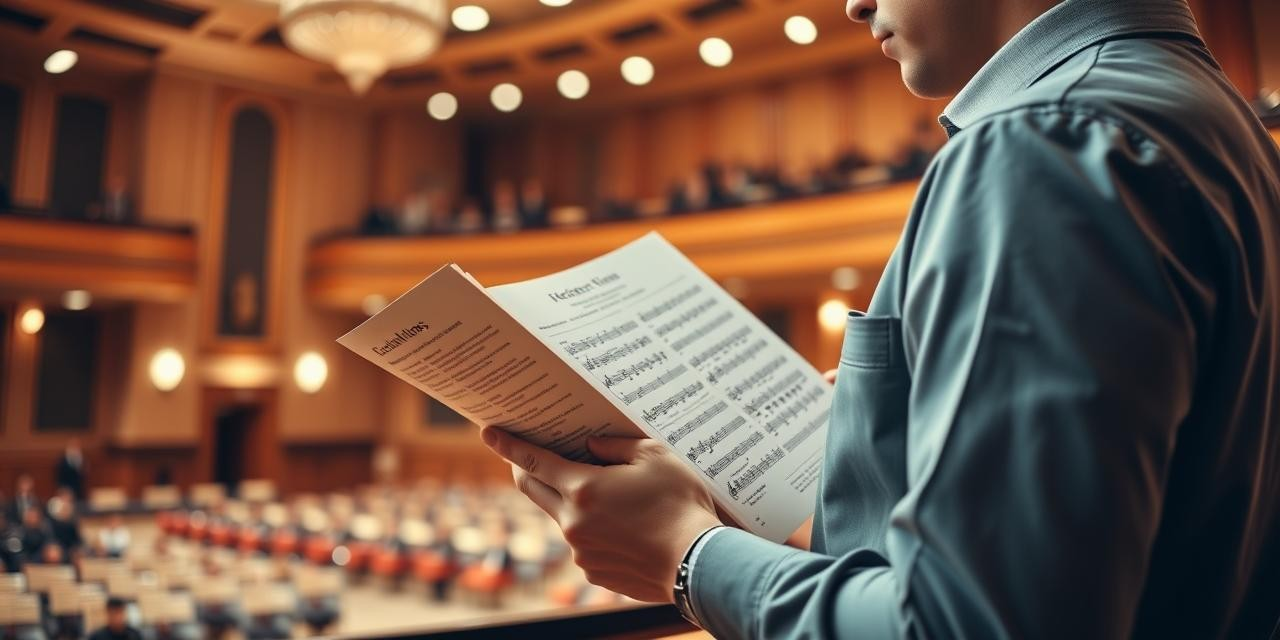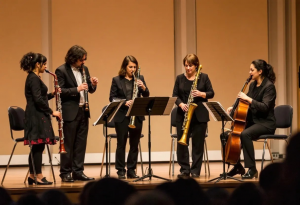So, you’re thinking about going to a classical music concert? Awesome! Maybe you’re curious, maybe a little nervous, or just want to try something new. Whatever it is, stepping into a concert hall can be an amazing experience.
This guide? It’s here to help you feel confident and enjoy the music.
First-Timer’s Guide to Classical Concerts
Set the Stage for Success: Pre-Concert Prep
A little prep can really boost your concert experience. Here’s what to think about:
- Pick the Right Concert: Start easy. Look for concerts with famous composers – Mozart, Beethoven, Tchaikovsky. Think familiar tunes. Or go for shorter pieces or themed concerts (like “A Night at the Movies”). Great for starters!
- Dive into the Program Notes: Most concerts give you program notes – either printed or online. Read them! They tell you about the composers, the history of the music, and what to listen for. Trust me, knowing a bit beforehand makes a big difference.
- Give it a Listen: Spotify, Apple Music… they’re your friends. Listen to the music before the concert. You don’t need to be an expert. Just get familiar with the main melodies. It’ll help you follow along during the live performance.
- What to Wear?: Don’t sweat it too much. Forget the tuxedos and ballgowns of yesteryear! Most concerts these days are pretty relaxed. Neat and comfy clothes are perfect. Business casual or smart casual? You’re golden. Just avoid anything too distracting or noisy (rustling fabrics, jangling jewelry).

Decoding Concert Etiquette: The Unspoken Rules
Okay, concert etiquette can seem scary. But it’s mostly just common sense and being nice to the performers and other people.
- Be on Time: Late arrivals? Disruptive. Aim to get there 15-20 minutes early. This gives you time to park, find your seat, and settle in. No stress!
- Silence is Golden: Seriously. Turn off your phone. Or at least put it on silent. No texting, no browsing, no calls during the music. That screen glare is annoying to everyone.
- Keep the Noise Down: No talking, whispering, or candy-wrapper crinkling during the performance. Gotta cough? Do it quietly and cover your mouth. Maybe bring a cough drop just in case.
- When to Clap?: The big question! Usually, you clap after the whole piece is done, not between movements. If you’re not sure, wait for others to start. When the conductor lowers their arms and turns to the audience? Safe to clap.
- Stay Put: Unless you really need to leave, stay in your seat during the performance. Walking out is rude to the performers and distracting to everyone else.
Experiencing the Music: Tuning In
Now, the best part – the music itself! Here’s how to really connect with it:
- Listen Up: Close your eyes, focus on the music. Hear the different instruments, the melodies, the harmonies, the feeling of the piece.
- Let it Move You: Classical music is all about emotion. Let yourself feel it. Joy, sadness, excitement, peace… it’s all good.
- Follow the Score (If You Want): Musically inclined? Find a score online and follow along. It can really deepen your understanding of the music.
- Watch the Musicians: The conductor, the players… watch them! Their faces, their movements, how they work together. It’s fascinating to see music being made.
Meet the Orchestra: Instrument Families
Ever wondered about all those instruments? Here’s a quick guide:
- Strings: Violins, violas, cellos, basses. The heart of the orchestra. They can play soft melodies or powerful chords.
- Woodwinds: Flutes, oboes, clarinets, bassoons. They add color and texture to the music.
- Brass: Trumpets, horns, trombones, tubas. Power and grandeur! Bright and resonant sounds.
- Percussion: Timpani, drums, cymbals… rhythm and excitement!
Classical Music FAQs: Addressing Your Concerns
Got questions? Here are some common ones from newbies:
- “What if I don’t get the music?” That’s totally fine! Classical music isn’t about “getting” it. It’s about experiencing it and letting it affect you.
- “What if I fall asleep?” Happens to the best of us! Don’t worry. Sit up, focus on the music.
- “Can I bring my kids?” Some concerts are for kids. For regular concerts? Think about your child’s personality and how long they can pay attention. If they’re likely to be noisy, maybe leave them at home this time.
- “Gotta leave early!” Try to wait for a break between pieces. Emergency? Leave quietly.
After the Applause: Reflecting on the Music
The concert’s over, but the experience isn’t! Think about it. What did you love? What was challenging? What did you learn?
The more concerts you go to, the more you’ll develop your own taste and really appreciate classical music.
Going to a live classical music performance? It’s special. Follow these tips, relax, and get ready to discover something amazing!
Go on, give it a try!
Enjoy the music!

